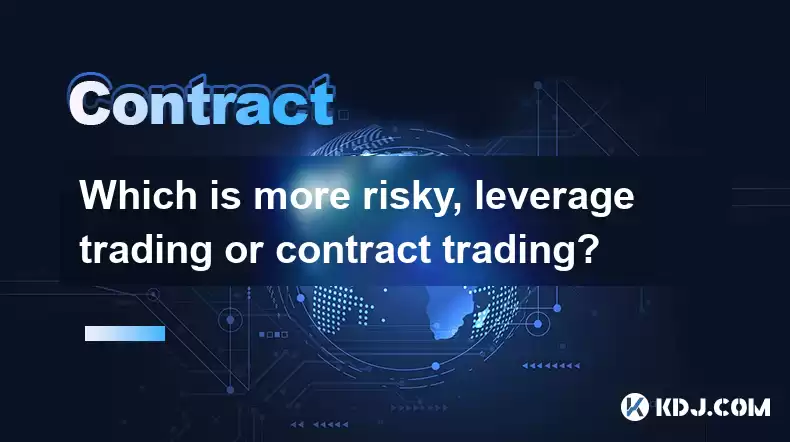-
 Bitcoin
Bitcoin $118900
-2.33% -
 Ethereum
Ethereum $4288
-0.13% -
 XRP
XRP $3.151
-3.21% -
 Tether USDt
Tether USDt $1.000
0.02% -
 BNB
BNB $809.5
-1.17% -
 Solana
Solana $175.7
-4.75% -
 USDC
USDC $0.0000
0.01% -
 Dogecoin
Dogecoin $0.2246
-5.75% -
 TRON
TRON $0.3473
2.19% -
 Cardano
Cardano $0.7809
-5.18% -
 Chainlink
Chainlink $21.38
-3.48% -
 Hyperliquid
Hyperliquid $43.29
-5.53% -
 Stellar
Stellar $0.4375
-3.21% -
 Sui
Sui $3.685
-6.68% -
 Bitcoin Cash
Bitcoin Cash $595.2
3.50% -
 Hedera
Hedera $0.2483
-6.60% -
 Ethena USDe
Ethena USDe $1.001
-0.01% -
 Avalanche
Avalanche $23.03
-5.28% -
 Litecoin
Litecoin $119.5
-5.02% -
 Toncoin
Toncoin $3.395
-0.07% -
 UNUS SED LEO
UNUS SED LEO $9.007
-1.19% -
 Shiba Inu
Shiba Inu $0.00001304
-5.44% -
 Uniswap
Uniswap $11.35
1.57% -
 Polkadot
Polkadot $3.898
-5.43% -
 Cronos
Cronos $0.1671
-0.16% -
 Ethena
Ethena $0.8121
-2.45% -
 Dai
Dai $1.000
0.02% -
 Bitget Token
Bitget Token $4.412
-1.73% -
 Monero
Monero $264.0
-0.64% -
 Pepe
Pepe $0.00001128
-8.12%
Which is more risky, leverage trading or contract trading?
Leverage and contract trading present distinct risks, with leverage magnifying gains/losses and contract trading exposing to market volatility and potential counterparty default.
Dec 16, 2024 at 10:54 am

Understanding the Risks of Leverage Trading vs. Contract Trading
In the realm of blockchain finance, leverage trading and contract trading present distinct investment strategies with varying levels of risk. Both techniques amplify the potential for rewards and losses, making it crucial for investors to comprehend their underlying mechanisms and associated risks.
Assessing the Risks of Leverage Trading
- Magnification of Gains and Losses: Leverage trading involves borrowing funds to amplify the purchasing power of an investment. While this strategy can amplify gains if the market moves in a favorable direction, it also magnifies potential losses if the market turns against the trader.
- Margin Calls: When leveraging an investment, the trader must maintain a minimum margin balance in their trading account as collateral. If the market moves against the trader and the margin balance falls below a predetermined level, the broker may issue a margin call, requiring the trader to deposit additional funds or liquidate the position. Failure to meet a margin call can result in substantial financial losses.
- Risk of Liquidation: In the event of sharp market downturns, leveraged positions can face the risk of liquidation. When the market value of an asset falls below the liquidation price predetermined by the broker, the position is automatically closed and may result in significant losses.
- Psychological Stress: Leverage trading can induce psychological stress due to the heightened volatility and amplified risk of losses. Traders may experience anxiety and emotional decision-making, which can impair their judgment and lead to poor trading outcomes.
Exploring the Risks of Contract Trading
- Unpredictable Market Movements: Contract trading involves agreeing to buy or sell an asset at a predetermined price on a future date. However, the underlying asset price is subject to market fluctuations, which can create unpredictable outcomes and lead to significant losses if the market moves adversely.
- Settlement Risk: Contract trading carries the risk of counterparty default. If the party on the opposite side of a contract fails to meet its obligations, the trader may face financial losses or be unable to execute the contract as intended.
- Market Manipulation: Contract markets may be susceptible to manipulation by large traders or groups of traders who have the ability to influence prices in a way that benefits their own positions, potentially harming smaller traders who lack the same level of market power.
- Fees and Commissions: Contract trading involves brokerage fees, exchange fees, and other costs, which can add up over time and reduce potential returns. Traders should carefully consider these fees when evaluating the profitability of their trading strategies.
Comparing Leverage Trading and Contract Trading
Determining whether leverage trading or contract trading is more risky is subjective and depends on the specific circumstances and risk tolerance of the trader. Leverage trading tends to carry higher risks due to the magnification of losses, margin calls, and potential for liquidation. Contract trading, on the other hand, involves the risk of unpredictable market movements, settlement risk, and market manipulation.
Ultimately, both techniques present significant risks and require thorough research, risk management, and a deep understanding of the underlying markets. Investors should carefully evaluate their investment objectives, risk tolerance, and financial situation before engaging in either form of trading.
Disclaimer:info@kdj.com
The information provided is not trading advice. kdj.com does not assume any responsibility for any investments made based on the information provided in this article. Cryptocurrencies are highly volatile and it is highly recommended that you invest with caution after thorough research!
If you believe that the content used on this website infringes your copyright, please contact us immediately (info@kdj.com) and we will delete it promptly.
- Dogecoin, Presale, Surge: Riding the Meme Coin Wave
- 2025-08-12 11:10:12
- Dogecoin, Tron, and the ROI Reality Check: What's a Crypto Investor to Do?
- 2025-08-12 11:15:12
- Ethereum Layer-2 Scaling Competition Heats Up as ETH Breaks $4K
- 2025-08-12 10:30:12
- China Regulation, Stablecoins, and BNB Presale: Navigating the Crypto Landscape
- 2025-08-12 11:30:12
- Meme Coins, Investment, and Token Burns: What's Hot in 2025?
- 2025-08-12 10:30:12
- BlockDAG, Chainlink, Hedera: The Cryptos Enterprises are Eyeing
- 2025-08-12 09:30:12
Related knowledge

Is it possible to adjust the leverage on an open position on KuCoin?
Aug 09,2025 at 08:21pm
Understanding Leverage in KuCoin Futures TradingLeverage in KuCoin Futures allows traders to amplify their exposure to price movements by borrowing fu...

What cryptocurrencies are supported as collateral on KuCoin Futures?
Aug 11,2025 at 04:21am
Overview of KuCoin Futures and Collateral MechanismKuCoin Futures is a derivatives trading platform that allows users to trade perpetual and delivery ...

What is the difference between realized and unrealized PNL on KuCoin?
Aug 09,2025 at 01:49am
Understanding Realized and Unrealized PNL on KuCoinWhen trading on KuCoin, especially in futures and perpetual contracts, understanding the distinctio...

How does KuCoin Futures compare against Binance Futures in terms of features?
Aug 09,2025 at 03:22am
Trading Interface and User ExperienceThe trading interface is a critical component when comparing KuCoin Futures and Binance Futures, as it directly i...

How do funding fees on KuCoin Futures affect my overall profit?
Aug 09,2025 at 08:22am
Understanding Funding Fees on KuCoin FuturesFunding fees on KuCoin Futures are periodic payments exchanged between long and short position holders to ...

What is the distinction between mark price and last price on KuCoin?
Aug 08,2025 at 01:58pm
Understanding the Basics of Price in Cryptocurrency TradingIn cryptocurrency exchanges like KuCoin, two key price indicators frequently appear on trad...

Is it possible to adjust the leverage on an open position on KuCoin?
Aug 09,2025 at 08:21pm
Understanding Leverage in KuCoin Futures TradingLeverage in KuCoin Futures allows traders to amplify their exposure to price movements by borrowing fu...

What cryptocurrencies are supported as collateral on KuCoin Futures?
Aug 11,2025 at 04:21am
Overview of KuCoin Futures and Collateral MechanismKuCoin Futures is a derivatives trading platform that allows users to trade perpetual and delivery ...

What is the difference between realized and unrealized PNL on KuCoin?
Aug 09,2025 at 01:49am
Understanding Realized and Unrealized PNL on KuCoinWhen trading on KuCoin, especially in futures and perpetual contracts, understanding the distinctio...

How does KuCoin Futures compare against Binance Futures in terms of features?
Aug 09,2025 at 03:22am
Trading Interface and User ExperienceThe trading interface is a critical component when comparing KuCoin Futures and Binance Futures, as it directly i...

How do funding fees on KuCoin Futures affect my overall profit?
Aug 09,2025 at 08:22am
Understanding Funding Fees on KuCoin FuturesFunding fees on KuCoin Futures are periodic payments exchanged between long and short position holders to ...

What is the distinction between mark price and last price on KuCoin?
Aug 08,2025 at 01:58pm
Understanding the Basics of Price in Cryptocurrency TradingIn cryptocurrency exchanges like KuCoin, two key price indicators frequently appear on trad...
See all articles

























































































